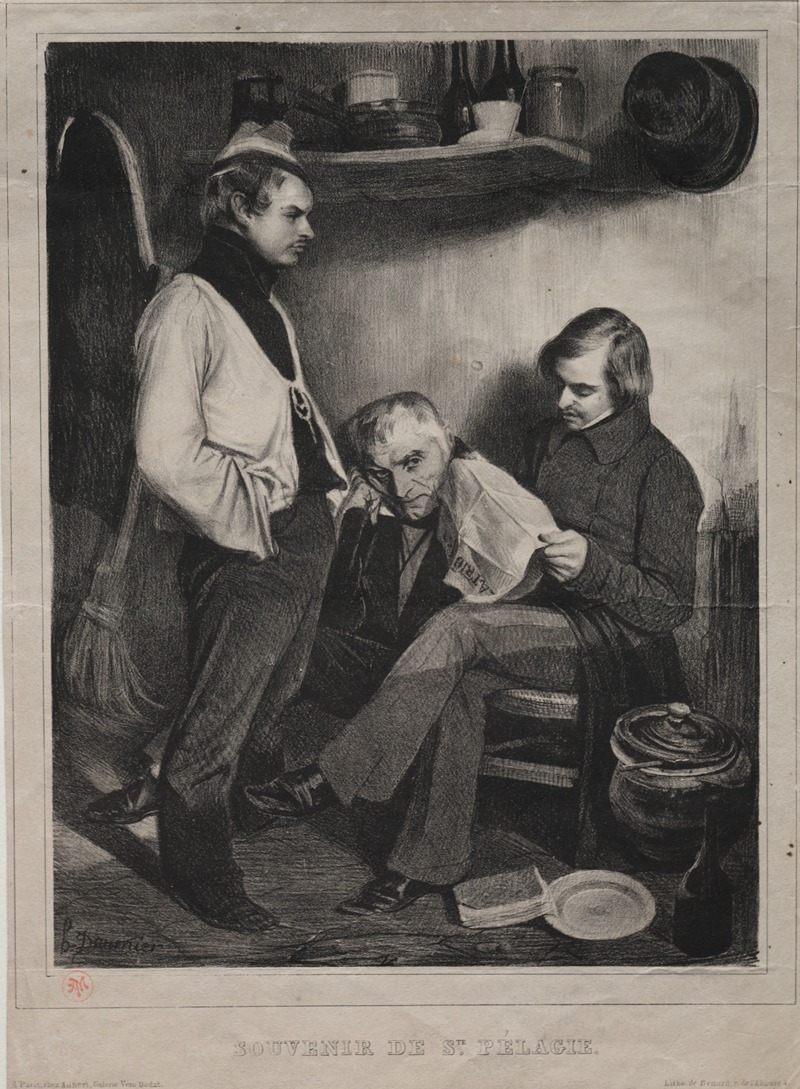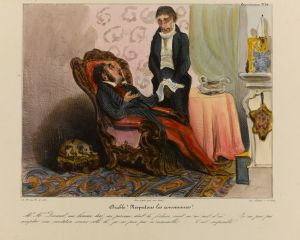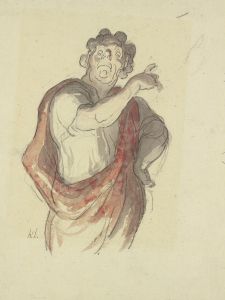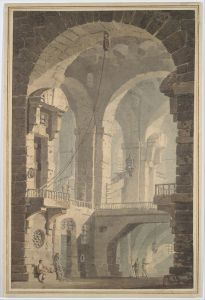
Souvenir of the Prison ot Ste. Pélagie
A hand-painted replica of Honoré Daumier’s masterpiece Souvenir of the Prison ot Ste. Pélagie, meticulously crafted by professional artists to capture the true essence of the original. Each piece is created with museum-quality canvas and rare mineral pigments, carefully painted by experienced artists with delicate brushstrokes and rich, layered colors to perfectly recreate the texture of the original artwork. Unlike machine-printed reproductions, this hand-painted version brings the painting to life, infused with the artist’s emotions and skill in every stroke. Whether for personal collection or home decoration, it instantly elevates the artistic atmosphere of any space.
Honoré Daumier, a prominent French artist known for his caricatures, paintings, and sculptures, created the artwork titled "Souvenir of the Prison of Ste. Pélagie." Daumier was born in 1808 in Marseille, France, and became one of the most influential figures in 19th-century French art, particularly noted for his social and political commentary.
"Souvenir of the Prison of Ste. Pélagie" is a reflection of Daumier's personal experiences and his engagement with the political climate of his time. The Sainte-Pélagie Prison, located in Paris, was notorious for housing political prisoners during the 19th century. It became a symbol of the oppressive measures taken by the government against dissenters and those who challenged the status quo. Daumier himself was imprisoned there for six months in 1832 due to his satirical lithographs that criticized the government of King Louis-Philippe.
The artwork captures the essence of Daumier's critical perspective on the justice system and the political environment of France during his lifetime. His time in Sainte-Pélagie left a significant impact on him, influencing his subsequent works that often depicted the struggles and injustices faced by the common people. Daumier's art is characterized by its bold lines, expressive figures, and the ability to convey strong emotions and narratives through visual means.
In "Souvenir of the Prison of Ste. Pélagie," Daumier likely draws upon his personal experiences and observations from his imprisonment. While specific details about the composition and style of this particular work are not extensively documented, it can be inferred that Daumier's approach would have been consistent with his other works, which often employed a realist style infused with elements of caricature and satire.
Daumier's broader body of work includes over 4,000 lithographs, numerous paintings, and sculptures, many of which critique the social and political issues of his time. His art often highlighted the disparities between different social classes, the corruption within the legal system, and the plight of the working class. Through his keen observations and artistic skill, Daumier became a voice for the marginalized and a critic of the powerful.
"Souvenir of the Prison of Ste. Pélagie" stands as a testament to Daumier's enduring legacy as an artist who used his craft to challenge authority and advocate for social justice. His works continue to be celebrated for their historical significance and their ability to capture the complexities of human nature and society. Daumier passed away in 1879, but his influence on the art world and his contributions to social and political discourse remain impactful to this day.


















